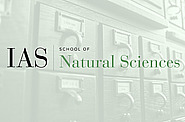Archive of IAS Friday High Energy Theory Seminars
Archive of IAS Friday High Energy Theory Seminars
Oct
17
2014
Oct
03
2014
High Energy Theory Seminar
An Explanation of the WW Excess at the LHC by Jet-veto (and pi^2) Resummation
Takemichi Okui
1:45pm|Bloomberg Lecture Hall
Sep
26
2014
May
23
2014
High Energy Theory Seminar
M2 Brane Junction and Four Dimensional Line Operator
1:30pm|Bloomberg Lecture Hall
May
09
2014
High Energy Theory Seminar
Naturalness After the First Run of the LHC
Marco Farina
1:30pm|Bloomberg Lecture Hall
Apr
25
2014
Apr
11
2014
High Energy Theory Seminar
Effective Actions for Anomalous Hydrodynamics
1:30pm|Bloomberg Lecture Hall
Mar
28
2014
Feb
28
2014
High Energy Theory Seminar
Conformal Field Theory and Quantized Space-Time
1:30pm|Bloomberg Lecture Hall
Feb
14
2014
High Energy Theory Seminar
Anomaly induced transport and Chiral part Cardy Formula
1:30pm|Bloomberg Lecture Hall
